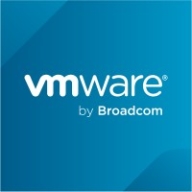

Pivotal Cloud Foundry and Cloud Foundry are key players in the cloud computing platform-as-a-service space. Pivotal Cloud Foundry leads with superior support and integration, while Cloud Foundry offers flexibility and cost-effectiveness.
Features: Pivotal Cloud Foundry is distinguished by its enterprise-ready capabilities such as robust security, extensive compliance, and seamless integration. Cloud Foundry provides significant flexibility, supporting a variety of development approaches and ensuring portability across different cloud services. The choice between Pivotal's enterprise focus and Cloud Foundry’s open-source flexibility is critical.
Ease of Deployment and Customer Service: Pivotal Cloud Foundry ensures a user-friendly deployment process and offers extensive customer service options to facilitate easy installation. In contrast, Cloud Foundry operates with an open-source model, focusing on community-driven support, which may demand technical expertise during deployment. Pivotal’s organized deployment and professional support give it a notable advantage.
Pricing and ROI: Pivotal Cloud Foundry involves higher initial investment due to its extensive enterprise offerings, yet promises substantial ROI through its advanced features and integration advantages. Cloud Foundry serves as a cost-effective choice with minimal initial costs, benefiting from its open-source framework that quickly yields ROI. Budget-conscious entities may gravitate towards Cloud Foundry, while Pivotal appeals to those seeking robust features and long-term returns.
| Product | Market Share (%) |
|---|---|
| Pivotal Cloud Foundry | 8.9% |
| Cloud Foundry | 2.1% |
| Other | 89.0% |


| Company Size | Count |
|---|---|
| Small Business | 5 |
| Large Enterprise | 11 |
Cloud Foundry, home of the open source application development technologies CF Application Runtime and CF Container Runtime, is more than a platform. It’s a flexible way of embracing digital transformation that helps businesses evolve in the face of constant change. To put it another way, with Cloud Foundry, companies can rest assured they will have the right tool for the right job.
Pivotal Cloud Foundry (PCF) is the leading enterprise PaaS, powered by Cloud Foundry. PCF provides a cloud-native application platform that allows you to continuously deliver any app to every major private and public cloud with a single platform. PCF is proven to accelerate feature delivery with higher developer productivity and a 200:1 developer to operator ratio. PCF's built-in security and self-healing capabilities reduce risk in your app portfolio while maintaining high-availability at scale to keep customer facing systems online even in the most challenging circumstances. pivotal.io
We monitor all PaaS Clouds reviews to prevent fraudulent reviews and keep review quality high. We do not post reviews by company employees or direct competitors. We validate each review for authenticity via cross-reference with LinkedIn, and personal follow-up with the reviewer when necessary.